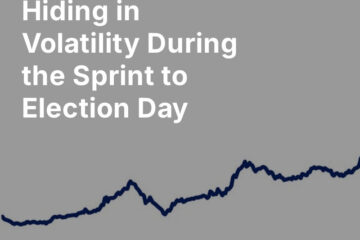The Fiduciary Standard Is Coming To Your Brokerage
Since 1974, consumer protection for retirement savings products has been overseen not by financial regulators, as one might expect, but by the Department of Labor, under ERISA (the Employee Retirement Income Security Act). Major new changes to this law are about to arrive with significant consequences for consumers with retirement funds, as well as for many of those who sell investment services.
Fiduciary Standards and Investment Services
In a nutshell, the world of investment advice falls into two categories: registered investment advisors (RIAs) and other fiduciaries, on the one hand, and a host of other financial professionals on the other. These non-fiduciaries have represented themselves using a variety of terms — at first, simply “stockbrokers,” but latterly, “financial advisors,” “financial planners,” or “portfolio advisors.”
What has differentiated these two classes of professionals offering investment advice to consumers is the level of requirements that they provide advice that is in their clients’ best interests. RIAs are vetted by the Securities and Exchange Commission, if they are large enough, or by the financial regulators in the state where they are located if they are smaller. RIAs must adhere to a fiduciary standard, which means simply that their clients’ interests supersede their own. An RIA must suggest the best available investment for a client.
(Some other professionals who must adhere to a fiduciary standard in many of their activities include trustees, conservators and legal guardians, attorneys, executors, board directors, and physicians.)
Other dispensers of investment advice have not, until now, been held to this standard; they are required merely to advise their clients to make investments that are “suitable.” Although many brokers are honest salespeople, and many behave as fiduciaries even though the law has not required them to, they have an interest in selling products that will generate the highest commissions, since they are paid on a commission basis. Those products need not be the best available choices for the clients, but merely suitable for their clients. Conflicts of interest can arise when brokers get bigger commissions for some products than for others (whether their own firms’ products or those of a third party). Such investments may be “suitable,” broadly construed, but far from the least expensive and most appropriate investment that could be found for the client. Sometimes, they are complex and laden with hidden fees.
Not All Those Offering Advice Have Interests That Are Aligned With Yours
New Rules Make Big Changes
Prompted by the Obama administration, the Department of Labor has spent nearly two years preparing to tighten standards for brokers and other non-RIAs who offer investment advice for retirement accounts. The DoL allowed an extremely long period of comment to take in criticism and analysis of the proposed rules — almost certainly because the administration wanted to minimize the risk of future lawsuits from the industry, which has a powerful lobby. The Council of Economic Advisers estimates that the current “suitability standard” for brokers costs investors $17 billion annually in excess fees and lost performance. That’s a lot of money on the line, and a powerful motivator.
The new regulations run to more than a thousand pages, and thousands of brokers, brokerage firms, insurance companies, and others affected by them are poring over them to see exactly what they hold. 401(k)s and individual retirement accounts in the U.S. hold some $14 trillion, so the changes will be significant, and we will continue to report on them as they become clear.
Those affected by the new rules bought some additional time to come into compliance; they won a few carve-outs of areas where the criteria are less stringent. However, although some of the measures included have softened from those initially discussed by the DoL, the basic thrust of the legislation is intact: now everyone dispensing investment advice on retirement accounts will be held to the higher, fiduciary standard.
This is going to represent a massive sea change in the way brokers operate, and those changes will be percolating through to the millions of Americans who pay for their services. At Guild, which is an SEC-registered investment advisor, we have adhered to fiduciary standards for our entire life as a firm (more than four decades), and we certainly welcome the expansion of these standards, which we view as simple and fair common sense.
Investment implications: The Department of Labor has issued its final rules overhauling the standards that govern how brokers give advice to their clients. While registered investment advisors (RIAs) have long been held to a fiduciary standard (which requires that they act in their clients’ best interests), stockbrokers (who may also call themselves “financial advisors”) insurance salespeople, and others have been held instead to a standard which requires only that investments be “suitable.” Critics of these more lax standards have argued for many years that they leave open the door for many conflicts of interest in which unscrupulous salespeople could provide expensive, inferior products for which they receive greater commissions. The Council of Economic Advisers estimates that those lax standards cost consumers $17 billion annually in excess fees and underperformance. Now, however, despite intense lobbying, all those offering investment advice on retirement accounts will be held to fiduciary standards. We will report on the details and consequences of the new legislation as they become clear. For now, we note that one likely consequence will be that even more of the $14 trillion held in U.S. retirement accounts will begin to migrate into index funds — strengthening a long-term trend which, as we have noted in the past, increases correlation among index components, and can afford fundamental analysts the opportunity to capitalize on resultant mispricings.
April 14, 2016 Premium Global Market Commentary click here



